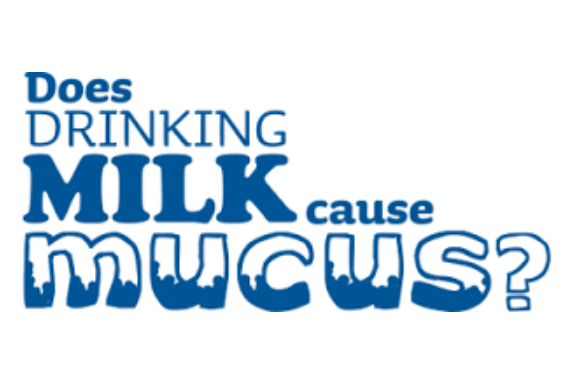The belief has been held for years that milk causes mucus formation, although the few studies on this topic have failed to demonstrate any effect of milk on mucus production. Many people confuse the temporary, slight thickening of saliva after drinking milk with mucus. There is no scientific research showing that milk produces mucus in the airways or the throat. It will not worsen cold or asthma symptoms. In fact, although many people reduce milk intake when they have a cold, one clinical trial showed milk and dairy food intake was not associated with an increase in upper or lower respiratory tract symptoms of congestion. Studies have found milk intake was not associated with increased nasal secretions, coughing, nose symptoms or congestion. Dairy products can stick to phlegm making it seem more copious. Unless you are allergic to milk or milk products, there should be no change in the amount of mucous your body produces during a cold. Some doctors say that milk thickens saliva, which may coat the throat and give the perception of more mucus, but it does not cause the body to produce more mucus or phlegm.
Calcium is primarily stored in our bones (99%). The other 1% must come from our diet -DAILY. If blood levels are not adequate, calcium is pulled from bones leading to osteoporosis over a period of time. 3 servings per day is recommended for ages 19 to 51.
How are you getting your recommended servings daily calcium and vitamin D (including the sun)?
Be Faithful, Feel Worthy, and Stay Fit


